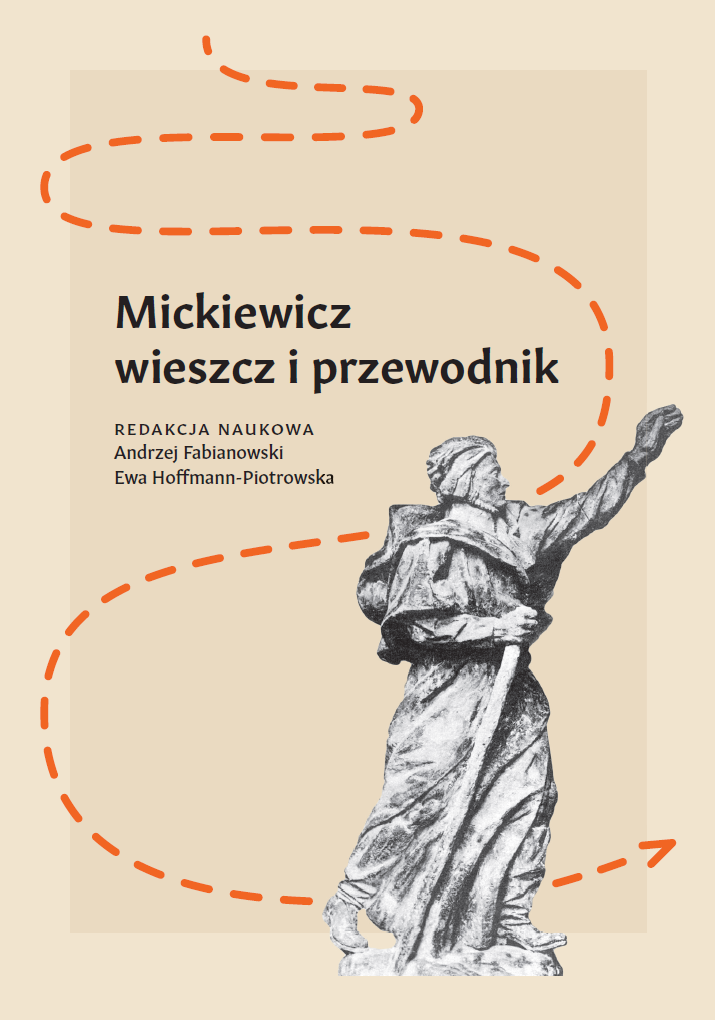Dwie lekcje przyrody. Poetyckie wykłady w „Drodze do Rosji” (III część Dziadów) i w „Mateczniku” (Pan Tadeusz)
TWO LESSONS ON NATURE. POETIC LECTURES IN JOURNEY TO RUSSIA (FOREFATHERS’ EVE, PART III) AND IN THE BACKWOOD (PAN TADEUSZ)
Author(s): Jerzy Borowczyk, Krzysztof Skibski
Subject(s): Language and Literature Studies, Cultural history, Studies of Literature, Polish Literature
Published by: Wydawnictwa Uniwersytetu Warszawskiego
Keywords: space in literature; geopoetics; Romantic concept of nature; utopia in literature; Romantic irony; Romantic epic; historiosophy and eschatology in Romantic literature
Summary/Abstract: The authors analyse the style, poetic syntax and ideological issues of the Ustęp Droga do Rosji [The Passage Journey to Russia] in Dziady część III [Forefathers’ Eve, part III] and the part of Book IV of Pan Tadeusz – Matecznik [The Backwood]. The authors consider these two descriptive fragments as ‘lessons on nature’ in verse form. The term a ‘lesson on nature’ is intended to emphasise Mickiewicz’s inclinations to merge and confront a number of various themes and threads such as nature, politics, history, existence and theology with his own creations of artistic and personal nature such as being a poet, a sage, a traveller, an expert on history or an admirer of folk people and their traditions, stories and legends. The construction and space creation, where the movement inwards is easily identified, are the two elements that play a vital role in both fragments. Each text deals with the movement in a different poetic manner and what is more, it assumes a unique significance in each instance. The goal Mickiewicz achieves in both fragments is utopia, yet each time it is implemented differently. In Droga do Rosji [Journey to Russia] it is rendered as a dehumanized space of tsarist Russia whereas the utopia of Matecznik [The Backwood] manifests itself in the absence of aggression, in the local people’s wisdom of life, and in a humble attitude towards the mystery of nature. In the final part of the essay the authors point out that Mickiewicz’s poetic definitions of nature, which emerge from both texts, are nothing but a manifestation of Romantic irony.
Book: Mickiewicz – wieszcz i przewodnik
- Page Range: 84-95
- Page Count: 12
- Publication Year: 2019
- Language: Polish
- Content File-PDF

